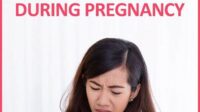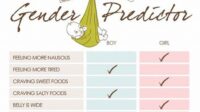A pregnant woman’s diet has a significant impact on her health and the development of her baby. During the first trimester, it is especially important to eat a healthy diet that provides the nutrients needed for the baby’s growth and development.
During the first trimester, the baby’s organs and tissues begin to form. The baby also begins to grow rapidly. To support this growth, the mother needs to eat a diet that is rich in protein, iron, calcium, and other nutrients.
Important Nutrients for First Trimester Pregnant Women
- Protein is essential for the growth and development of the baby’s organs and tissues. Good sources of protein include lean meat, poultry, fish, beans, and nuts.
- Iron is important for the production of red blood cells. Good sources of iron include red meat, spinach, and lentils.
- Calcium is important for the development of the baby’s bones and teeth. Good sources of calcium include milk, yogurt, and cheese.
- Folic acid is important for the prevention of neural tube defects. Good sources of folic acid include leafy green vegetables, citrus fruits, and fortified cereals.
In addition to these nutrients, pregnant women also need to eat plenty of fruits, vegetables, and whole grains. These foods provide essential vitamins, minerals, and fiber.
It is important to talk to a doctor or registered dietitian about the best diet for you during pregnancy. They can help you create a meal plan that meets your individual needs.
Important Nutrition and Types of Food for First Trimester Pregnant Women
Proper nutrition during the first trimester of pregnancy is essential for the health of both the mother and the developing baby. Here are four key aspects to consider:
- Protein: Protein is essential for the growth and development of the baby’s organs and tissues.
- Iron: Iron is important for the production of red blood cells, which carry oxygen to the baby.
- Calcium: Calcium is important for the development of the baby’s bones and teeth.
- Folic acid: Folic acid is important for the prevention of neural tube defects.
In addition to these nutrients, pregnant women also need to eat plenty of fruits, vegetables, and whole grains. These foods provide essential vitamins, minerals, and fiber. A healthy diet during pregnancy can help to reduce the risk of pregnancy complications, such as preterm birth and low birth weight. It can also help to ensure that the baby is born healthy and develops properly.
Protein
Protein is a crucial macronutrient during the first trimester of pregnancy. It is essential for the growth and development of the baby’s organs and tissues. Protein also helps to maintain the mother’s blood sugar levels and energy levels.
Pregnant women should aim to consume about 71 grams of protein per day. Good sources of protein include lean meat, poultry, fish, beans, lentils, and nuts.
Getting enough protein during pregnancy is important for both the mother and the baby. A protein-deficient diet can lead to a number of health problems, including preterm birth, low birth weight, and developmental delays.
Iron
Iron is a mineral that is essential for the production of red blood cells. Red blood cells carry oxygen from the lungs to the rest of the body, including the baby. During pregnancy, the mother’s blood volume increases by about 50%. This means that she needs more iron to produce enough red blood cells to meet the needs of both herself and the baby.
- Iron deficiency is the most common nutritional deficiency during pregnancy. Iron deficiency can lead to anemia, which can cause fatigue, shortness of breath, and dizziness. Anemia can also increase the risk of premature birth and low birth weight.
- Pregnant women should aim to consume about 27 milligrams of iron per day. Good sources of iron include red meat, poultry, fish, beans, lentils, and dark leafy green vegetables.
- Iron supplements may be necessary for pregnant women who are unable to get enough iron from their diet. Iron supplements can help to prevent iron deficiency and anemia.
Getting enough iron during pregnancy is important for both the mother and the baby. Iron deficiency can lead to a number of health problems, including anemia, premature birth, and low birth weight. Pregnant women should talk to their doctor about the best way to get enough iron during pregnancy.
Calcium
Calcium is a mineral that is essential for the development of the baby’s bones and teeth. It is also important for the mother’s bones, teeth, and blood clotting.
- During pregnancy, the baby’s bones grow rapidly. Calcium is needed for the bones to be strong and healthy.
- The baby’s teeth also begin to develop during the first trimester. Calcium is needed for the teeth to be strong and healthy.
- The mother’s body also needs calcium during pregnancy. Calcium is needed for the mother’s bones, teeth, and blood clotting.
Pregnant women should aim to consume about 1,000 milligrams of calcium per day. Good sources of calcium include milk, yogurt, cheese, leafy green vegetables, and fortified foods.
Getting enough calcium during pregnancy is important for both the mother and the baby. Calcium deficiency can lead to a number of health problems, including osteoporosis, tooth decay, and premature birth.
Folic acid
During pregnancy, folic acid is essential for the prevention of neural tube defects (NTDs), which are serious birth defects of the brain and spinal cord. NTDs can cause lifelong disabilities, including paralysis, intellectual disability, and learning problems.
-
How folic acid prevents NTDs
Folic acid is a B vitamin that is essential for the production of DNA and RNA. During pregnancy, folic acid is needed for the proper development of the baby’s neural tube, which eventually becomes the brain and spinal cord. If the mother does not get enough folic acid during pregnancy, the baby is at an increased risk of NTDs.
-
Good sources of folic acid
Good sources of folic acid include leafy green vegetables, citrus fruits, and fortified foods. Pregnant women should aim to consume about 400 micrograms of folic acid per day. This can be achieved through diet alone or by taking a prenatal vitamin.
-
Importance of folic acid supplementation
It is important to start taking folic acid before becoming pregnant, as NTDs can occur very early in pregnancy, even before the woman knows she is pregnant. For this reason, all women of childbearing age are recommended to take a daily folic acid supplement of 400 micrograms.
-
Consequences of folic acid deficiency
Folic acid deficiency can lead to a number of health problems, including NTDs, anemia, and heart disease. Folic acid deficiency is also a risk factor for premature birth and low birth weight.
Getting enough folic acid during pregnancy is essential for the prevention of NTDs. All women of childbearing age should take a daily folic acid supplement of 400 micrograms.
Tips for Eating Well During the First Trimester of Pregnancy
Eating a healthy diet during the first trimester of pregnancy is essential for the health of both the mother and the developing baby. Here are five tips for eating well during the first trimester:
Eat plenty of protein. Protein is essential for the growth and development of the baby’s organs and tissues. Good sources of protein include lean meat, poultry, fish, beans, and nuts.
Take a prenatal vitamin. A prenatal vitamin can help to ensure that you are getting all of the nutrients you need during pregnancy. Prenatal vitamins typically contain folic acid, iron, calcium, and other essential nutrients.
Eat plenty of fruits and vegetables. Fruits and vegetables are a good source of vitamins, minerals, and fiber. They are also low in calories, which is important for maintaining a healthy weight during pregnancy.
Drink plenty of fluids. Staying hydrated is important for both the mother and the baby. Drink plenty of water, juice, or milk throughout the day.
Avoid certain foods. There are certain foods that you should avoid during pregnancy, such as raw meat, fish, and eggs. These foods can contain bacteria that can be harmful to the baby.
Eating a healthy diet during the first trimester of pregnancy is essential for the health of both the mother and the baby. By following these tips, you can help to ensure that you are getting the nutrients you need to support a healthy pregnancy.
Summary of key takeaways or benefits:
- Eating a healthy diet during the first trimester of pregnancy can help to reduce the risk of pregnancy complications, such as preterm birth and low birth weight.
- Eating a healthy diet during the first trimester of pregnancy can help to ensure that the baby is born healthy and develops properly.
Transition to the article’s conclusion:
If you have any questions about what to eat during pregnancy, talk to your doctor or a registered dietitian.






